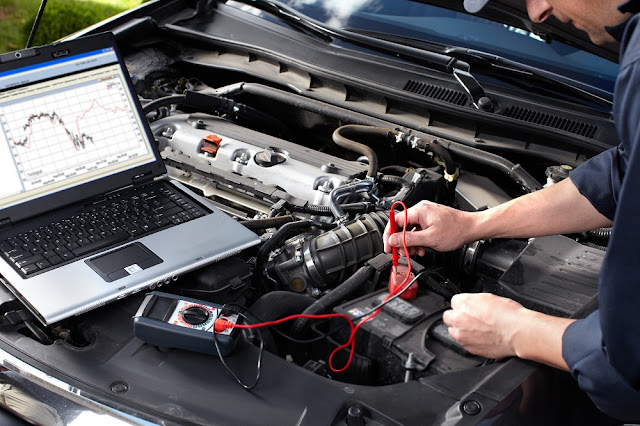Car Service Essentials: A Comprehensive Guide to Maintaining Your Vehicle
Owning a car comes with a sense of freedom and convenience. However, it also comes with the responsibility of regular maintenance to ensure your vehicle runs smoothly and safely. Car service is an essential aspect of vehicle ownership, but many drivers are unsure about the specifics of what it entails. What exactly is car service? How often should you get your car serviced? What are the different types of car service? In this comprehensive guide, we'll answer these questions and provide you with valuable information on how to properly maintain your vehicle.
What is Car Service?
Car service refers to the routine maintenance and inspection of a vehicle to ensure its optimal performance, safety, and longevity. Regular car service can help identify potential issues early, prevent costly repairs, and improve fuel efficiency. The process typically includes checking and replacing various fluids, filters, and components, as well as performing a thorough inspection of the vehicle's systems.
Importance of Regular Car Service
Regular car service is crucial for several reasons:
- Safety: A well-maintained vehicle is less likely to break down or cause accidents due to mechanical failure.
- Performance: Regular maintenance ensures your car runs smoothly and efficiently, providing a better driving experience.
- Longevity: Properly servicing your vehicle can extend its life, saving you money in the long run.
- Resale value: A well-maintained car will have a higher resale value when you decide to sell or trade it in.
- Environmental impact: A properly maintained vehicle produces fewer harmful emissions, contributing to a cleaner environment.
Types of Car Service
There are three main types of car service: basic, interim, and full. The specific services included in each type may vary depending on your vehicle's make, model, and age.
Basic Car Service
A basic car service, also known as an oil change service, is the most straightforward and frequent type of maintenance. It typically includes:
- Changing the engine oil and oil filter
- Checking and topping up other essential fluids (e.g., coolant, brake fluid, power steering fluid)
- Inspecting and adjusting tire pressures
- Visual inspection of the vehicle for any obvious issues
Interim Car Service
An interim car service is more comprehensive than a basic service, and generally includes:
- All services included in a basic car service
- Replacing the air filter
- Checking and adjusting the drive belts
- Inspecting the exhaust system
- Checking the suspension and steering components
- Testing the battery and charging system
Full Car Service
A full car service is the most thorough type of maintenance and should be performed at least once a year. It includes:
- All services included in an interim car service
- Replacing the fuel filter
- Replacing the spark plugs (for gasoline engines) or glow plugs (for diesel engines)
- Inspecting the brakes and replacing brake pads or shoes if necessary
- Flushing and replacing the brake fluid
- Checking and adjusting the wheel alignment
- Rotating and balancing the tires
Car Service Checklist
When servicing your car, it's helpful to have a checklist of tasks to ensure nothing is overlooked.
A car service checklist might include:
- Engine oil and filter change
- Fluid checks and top-ups (coolant, brake fluid, power steering fluid, windshield washer fluid)
- Air filter replacement
- Fuel filter replacement
- Spark plug or glow plug replacement
- Drive belt inspection and adjustment
- Exhaust system inspection
- Suspension and steering component inspection
- Brake inspection and service
- Battery and charging system test
- Tire pressure adjustment, rotation, and balancing
- Wheel alignment check and adjustment
- Visual inspection for any leaks, damage, or wear
How Often Should You Service Your Car?
The frequency of car service depends on your vehicle's make, model, and age, as well as your driving habits and conditions. As a rule of thumb, you should have a basic car service every 3,000 to 5,000 miles or every three months, whichever comes first. An interim car service should be performed every 6,000 to 10,000 miles or every six months, while a full car service should be done at least once a year or every 12,000 to 15,000 miles.
Consult your vehicle's owner's manual for the manufacturer's recommended service intervals and follow them closely to keep your car in optimal condition.
DIY Car Service vs. Professional Service
While some car owners may prefer to perform basic car service tasks themselves, it's essential to consider the benefits of having a professional service your vehicle. Professional technicians have the experience, skills, and tools to identify and address issues that may not be apparent to the average car owner. Additionally, many car service providers offer warranties on their work, giving you peace of mind in the event of any issues.
Finding the Right Car Service Provider
When searching for a car service provider, consider the following factors:
- Reputation: Look for reviews and recommendations from friends, family, or online sources to find a reputable provider.
- Experience: Choose a provider with experience servicing your vehicle's make and model.
- Certifications: Look for providers with professional certifications, such as ASE (Automotive Service Excellence) or manufacturer-specific certifications.
- Warranty: Ensure the provider offers a warranty on their work for added peace of mind.
- Pricing: Compare prices between providers to find a fair and competitive rate for the services you need.
Conclusion
Regular car service is essential for maintaining the safety, performance, and longevity of your vehicle. By understanding the different types of car service, following a car service checklist, and adhering to the recommended service intervals, you can keep your car running smoothly and avoid costly repairs. Whether you choose to perform basic maintenance tasks yourself or rely on a professional car service provider, ensuring your vehicle receives the care it needs is an investment that pays off in the long run.




0 comments
Note: only a member of this blog may post a comment.